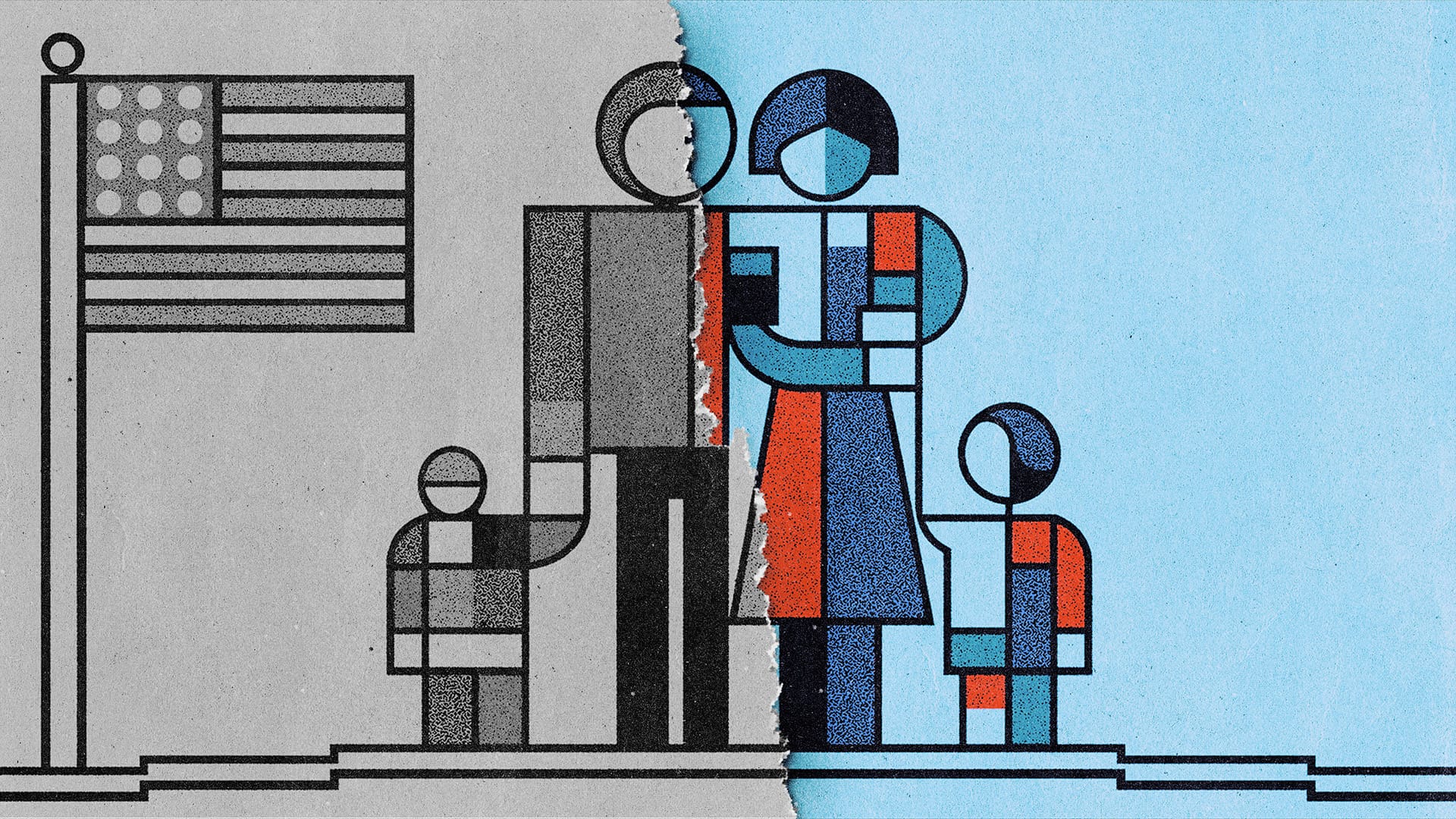SEAN MCMAHON: How To Preserve The Family Unit
Amid rising rates of fatherlessness, family values are not being preserved in American homes.
Growing up in a blue-collar family has taught me some very important lessons in life. One is the importance of having grit and endurance during the trials that life brings. I have witnessed this lesson unfold through my father, starting from childhood and lasting until the end of high school. Every day of my childhood, I had witnessed my father work tirelessly as a restaurant manager, providing for my family and opening doors for my brother and I to maximize our potential. It was this determination which shaped the course of my life and instilled in me a strong work ethic. Because of him, we were able to live a better life.
However, many families do not have the same opportunities, due to their fathers not being present. With the rising rates of fatherless homes, these traits are not being preserved in American homes. Without the presence of fathers to implement these essential life lessons, we are risking a generation that lacks the resilience needed to face the harsh reality of life. It is imperative that we treat the role of the father as one that is necessary in building resilient families, and that we work toward restoring these values in our society.
Today, the trend of government intervention taking the place of traditional parental roles is an unfortunate reality. Rather than reinforcing the fundamental fabric of the family, this shift has only exacerbated existing issues. According to the U.S. Census Bureau, around 18.3 million children in the United States live without a father at home. The impact of broken families is profound, as society bears the negative consequences. Children from fatherless homes are particularly affected, often experiencing serious mental health challenges, lower self-esteem, subpar academic performance and an inability to maintain healthy relationships. The absence of a father's guidance creates a void that government programs are fundamentally unable to fill, highlighting the urgent need to address the root causes of the deteriorating family unit.
Government programs designed to address the challenges of fatherlessness often fall short by focusing on managing symptoms rather than treating the root causes. For example, initiatives like welfare assistance and housing subsidies may offer temporary financial relief but do little to provide long-term stability. These programs can indirectly foster government dependency, making it harder for families to escape the cycle of poverty. Furthermore, while government-run childcare and education programs are well-intentioned, they often lack the flexibility and personalized attention that children from broken homes desperately need.
A prime example of this failed governmental approach is the infamous War on Poverty program from the 1960s, which had the goal of reducing poverty across the United States. Originally established as part of the Social Security Act in 1935, the Aid to Families with Dependent Children (AFDC) program was expanded during President Lyndon B. Johnson’s War on Poverty. It sought to provide financial assistance to low-income families, particularly single mothers, to help lift them out of poverty. However, the program led to several unintended consequences that ultimately worsened the very issues it was designed to address.
One of the most significant drawbacks of the AFDC program was that it inadvertently created a financial incentive for single parenthood. Benefits were determined based on household income and composition, meaning that if a father was present in the home, the household income might exceed the eligibility threshold, leading to a reduction or loss of benefits. This structure encouraged low-income mothers to remain unmarried or to exclude fathers from the household to maximize financial assistance. As a result, the policy discouraged marriage and contributed to the rise of single-parent households, particularly in low-income communities. The ripple effect of this policy has been linked to long-term consequences, including higher rates of poverty, lower educational attainment, and increased behavioral problems among children from these households.
While government programs like AFDC weakened the family unit by creating incentives that discouraged marriage and encouraged single parenthood, the free market offers a promising alternative to address these issues. In a free-market system, families can be empowered through economic opportunities, access to quality education, and community-based initiatives that reinforce family structures. By focusing on self-sufficiency, the free market addresses the root causes of poverty, providing a more sustainable solution to the challenges faced by low-income families.
One notable example of free-market solutions is the promotion of private-sector job training and apprenticeship programs. Initiatives like those offered by CareerWise Colorado, which partners with businesses to provide hands-on experience in various trades. By equipping fathers and even future fathers with in-demand skills, these programs help secure stable, well-paying jobs, laying a strong foundation for economic stability and reducing dependency on government assistance. The emphasis on self-sufficiency is critical, as it equips families with the tools they need for long-term success.
Reflecting on my upbringing, I realize how pivotal my father's hard work and commitment were in shaping my life and career. His resilience not only provided for our family but also instilled in me a strong work ethic that I strive to continue in my professional journey. I am forever grateful for his dedication to ensuring that I had a brighter future. However, the resilience my father embodied is becoming increasingly rare in today's world. As we continue to face the rising trend of fatherlessness, it's clear that government interventions cannot fill this void. Instead, we must prioritize strengthening the family by promoting self-sufficiency, economic opportunity, and community support. By restoring the role of fathers and embracing long-term solutions, we can rebuild the resilience needed for future generations to thrive. The path forward lies in reestablishing the importance of family, ensuring that every child has the opportunity to benefit from the guidance and support that only a committed, present parent can provide.







